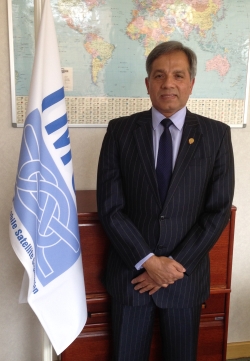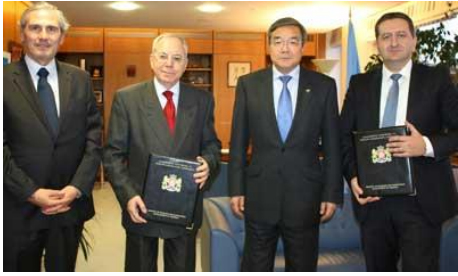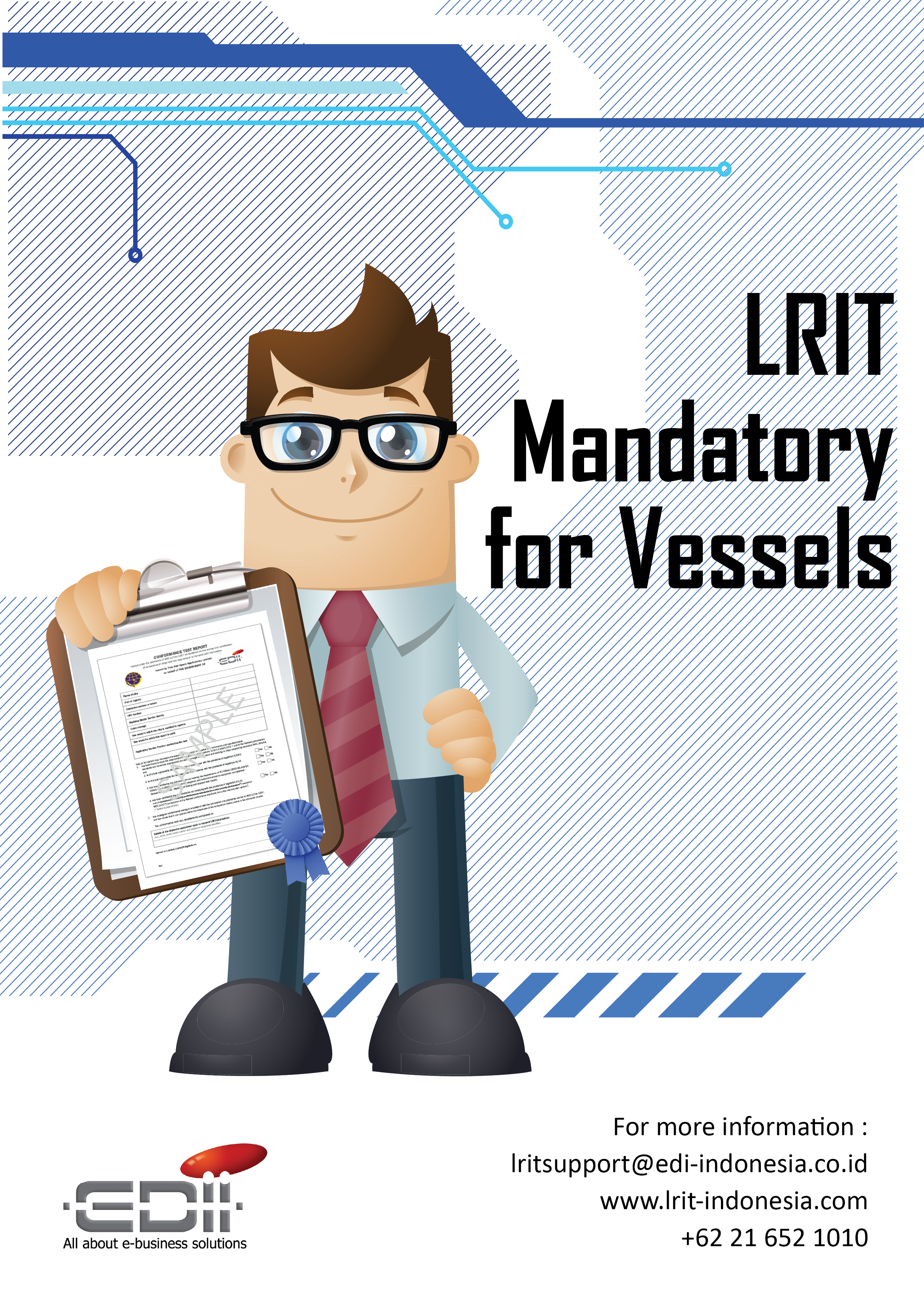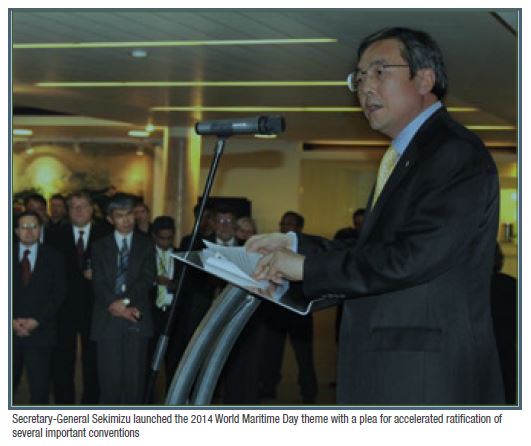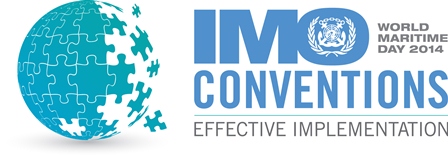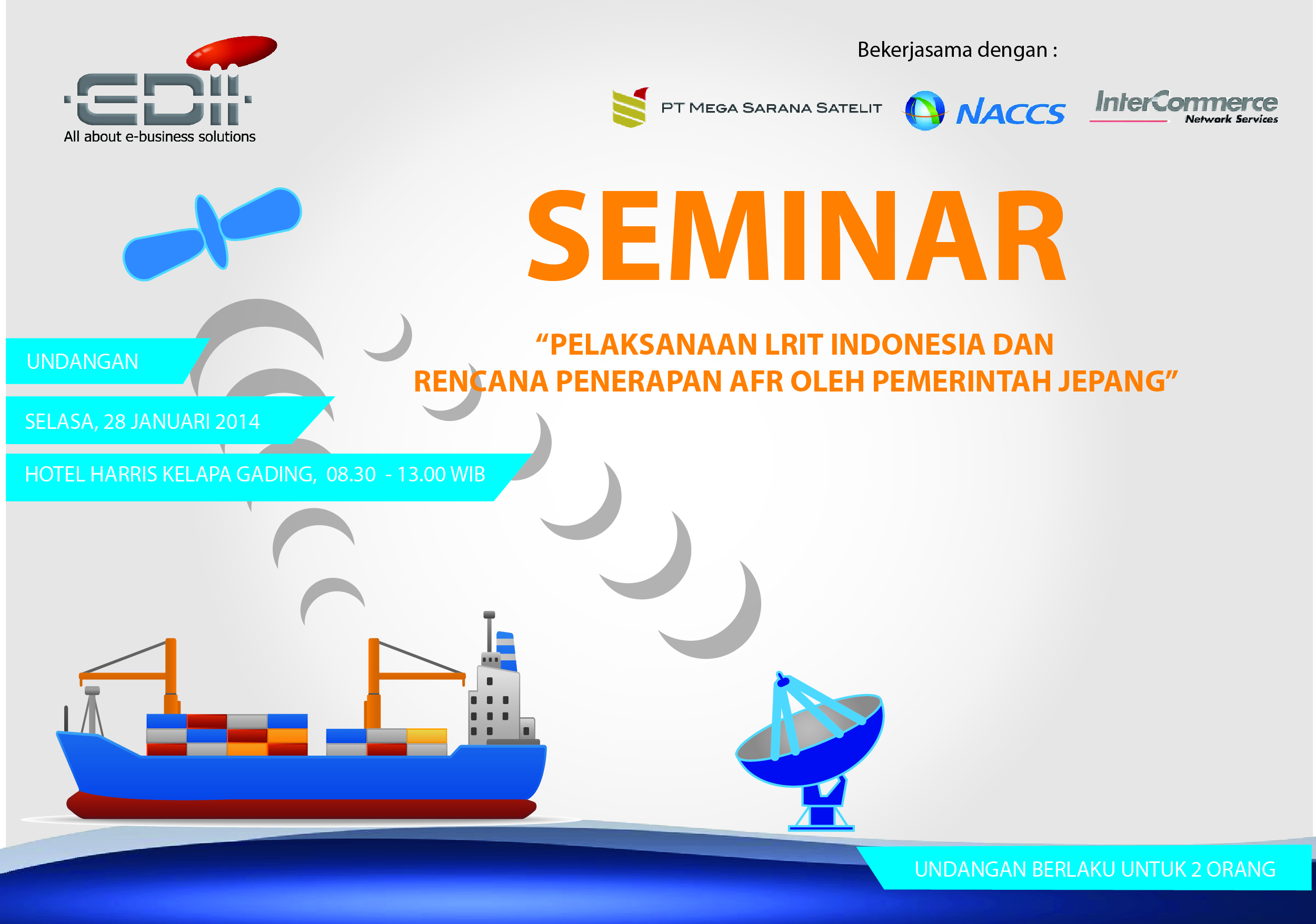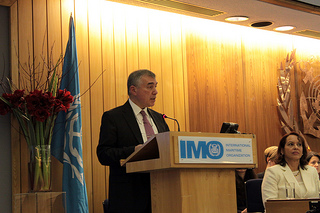
|
|
The declaration of the accurate gross mass of a packed container is critical to maritime safety.
What are the new rules?
On 1 July 2016, new requirements to verify the gross mass of a packed container enter into force under the International Convention for the Safety of Life at Sea (SOLAS).
Why have the requirements for verification of the gross mass of the container been introduced?
Knowing the accurate gross mass of a packed container is critical to ensure correct stowage and stacking and avoid collapse of container stacks or loss overboard.
This is an important safety measure, which is aimed at saving lives and preventing injury and the destruction of property.
Is declaration of gross mass a new requirement?
There has always been a requirement in SOLAS to declare the gross mass of cargo and containers. The new requirement adds an extra level requiring verification of the mass.
This is to ensure that the mass declared is a true reflection of the gross mass of the packed container, in order to avoid injury, cargo damage, loss of containers, and so on.
How can the gross mass be verified?
The SOLAS regulation allows for two methods to verify the gross mass of packed containers:
• Method 1. Weighing the packed container using calibrated and certified equipment; or
• Method 2. Weighing all packages and cargo items, including the mass of pallets, dunnage and other securing material to be packed in the container and adding the tare mass of the container to the sum of the single masses, using a certified method approved by the competent authority of the State in which packing of the container was completed.
Method 2 will not be practical for shippers of bulk commodities like iron ore, grain, etc.,
Who provides the verified gross mass?
The shipper is responsible for providing the verified gross mass by stating it in the shipping document and submitting it to the master or his representative and to the terminal representative sufficiently in advance for use in the preparation of the ship stowage plan.
Who is the shipper?
The shipper is defined as a legal entity or person named on the bill of lading or sea waybill or equivalent multimodal transport document (e.g. "through" bill of lading) as shipper and/or who (or in whose name or on whose behalf) a contract of carriage has been concluded with a shipping company. The shipper may be a manufacturer, ship agent, freight forwarder, etc.
What will happen if the verified gross mass is not provided?
The verified gross mass is a condition for loading a packed container onto a ship. A packed container, for which the verified gross mass has not been obtained sufficiently in advance to be used in the ship stowage plan, will be denied loading onto a ship to which the SOLAS regulations apply
Who decides on the “certified method” of weighing?
This is the responsibility of the competent authority of the State in which packing of the container was completed.
Who will enforce the regulations?
Like other SOLAS provisions, the enforcement of the SOLAS requirements regarding the verified gross mass of packed containers falls within the competence and is the responsibility of the SOLAS Contracting Governments. Contracting Governments acting as port States should verify compliance with these SOLAS requirements. Any incidence of non-compliance with the SOLAS requirements is enforceable according to national legislation.
Who pays if the gross mass of a container is not verified?
A packed container, for which the verified gross mass has not been obtained sufficiently in advance to be used in the ship stowage plan, will be denied loading onto a ship to which the SOLAS regulations apply. Any costs associated with the non-loading, storage, demurrage or eventual return of the container to the tendering shipper of the container should be subject to contractual arrangements between the commercial parties.
What if a container arrives for onward transportation without a verified gross mass?
While the shipper is responsible for obtaining and documenting the verified gross mass of a packed container, section 13 of the Guidelines regarding the verified gross mass of a container carrying cargo (MSC.1/Circ.1475) contains contingencies for containers received without a verified gross mass.
In order to allow the continued efficient onward movement of such containers, the master or his representative and the terminal representative may obtain the verified gross mass of the packed container on behalf of the shipper. This may be done by weighing the packed container in the terminal or elsewhere, but whether and how to do this should be agreed between the commercial parties, including the apportionment of the costs involved.
What will happen with regards to containers loaded prior to 1 July 2016 for transhipment?
The Maritime Safety Committee (MSC) at its 96th session in May 2016 agreed that while there should be no delay in the implementation of the SOLAS requirements, it would be beneficial if Administrations and port State control authorities could take a “practical and pragmatic approach” when enforcing them, for a period of three months immediately following 1 July 2016. This would help ensure that containers that are loaded before 1 July 2016, but transhipped on or after 1 July 2016, reach their final port of discharge without a verified gross mass and it would provide flexibility, for three months immediately after 1 July 2016, to all the stakeholders in containerized transport to refine, if necessary, procedures (e.g. updated software) for documenting, communicating and sharing electronic verified gross mass data.
The MSC agreed MSC.1/Circ.1548 Advice to Administrations, port State control authorities, companies, port terminals and masters regarding the SOLAS requirements for verified gross mass of packed containers.
What are the potential problems arising from misdeclared gross mass of a container?
There are a number of potential problems which could arise from a misdeclared container. They include:
• incorrect vessel stowage decisions;
• re-stowage of containers (and resulting delays and costs), if the overweight condition is ascertained;
• collapsed container stacks;
• containers lost overboard (both those overweight and containers that were not overweight);
• cargo liability claims;
• chassis damage;
• damage to ships;
• stability and stress risks for ships;
• risk of personal injury or death to seafarers and shore-side workers;
• impairment of service schedule integrity;
• supply chain service delays for shippers of properly declared containers;
• lost revenue and earnings;
• last minute shut-outs of confirmed, booked and available loads when the actual mass on board exceeds what is declared and the total cargo mass exceeds the vessel limit or port draft limit;
• impairment of ship’s optimal trim and draft, thus causing impaired vessel efficiency, suboptimal fuel usage, and increased emissions from ships;
• liability for accidents and fines for overweight containers on roads, and resulting time and administrative efforts and costs to seek reimbursement from responsible parties; and
• loss of revenue for customs authorities in cases where duties or tariffs are applied by weight measurement of a commodity.
What other work has IMO done to prevent loss of containers or problems with containers?
The new requirement to verify the gross mass of a packed container is just one element of the work that IMO has been doing to address losses of containers.
IMO has worked with the International Labour Organization (ILO) and the United Nations Economic Commission for Europe (UNECE), to develop a non-mandatory global code of practice for the handling and packing of cargo transport units for transportation by sea and land. The 2014 IMO/ILO/UNECE Code of Practice for Packing of Cargo Transport Units (CTU Code), along with related informative material, can be downloaded here.
At the request of IMO, the International Organization for Standardization (ISO) is revising relevant ISO standards (ISO 1161:Series 1 freight containers – Corner fittings – Specifications; and ISO 3874: Series 1 freight containers – Handling and securing) in order to incorporate the most recent advances in container handling and securing equipment, taking account of the latest generation of container ships with design capacity in excess of 18,000 TEU and including design and strength characteristics for automatic twistlocks.
IMO has also adopted the Code of Safe Practice for Cargo Stowage and Securing (CSS Code).
Where can I find out more?
Contact your national maritime Administration for specific advice and guidance: contact points.
Please visit the IMO webpage: Verification of the gross mass of a packed container
Download the text of the SOLAS regulations.
Download the IMO Guidelines regarding the verified gross mass of a container carrying cargo.
Download MSC.1/Circ.1548 Advice to Administrations, port State control authorities, companies, port terminals and masters regarding the SOLAS requirements for verified gross mass of packed containers.
|
|

